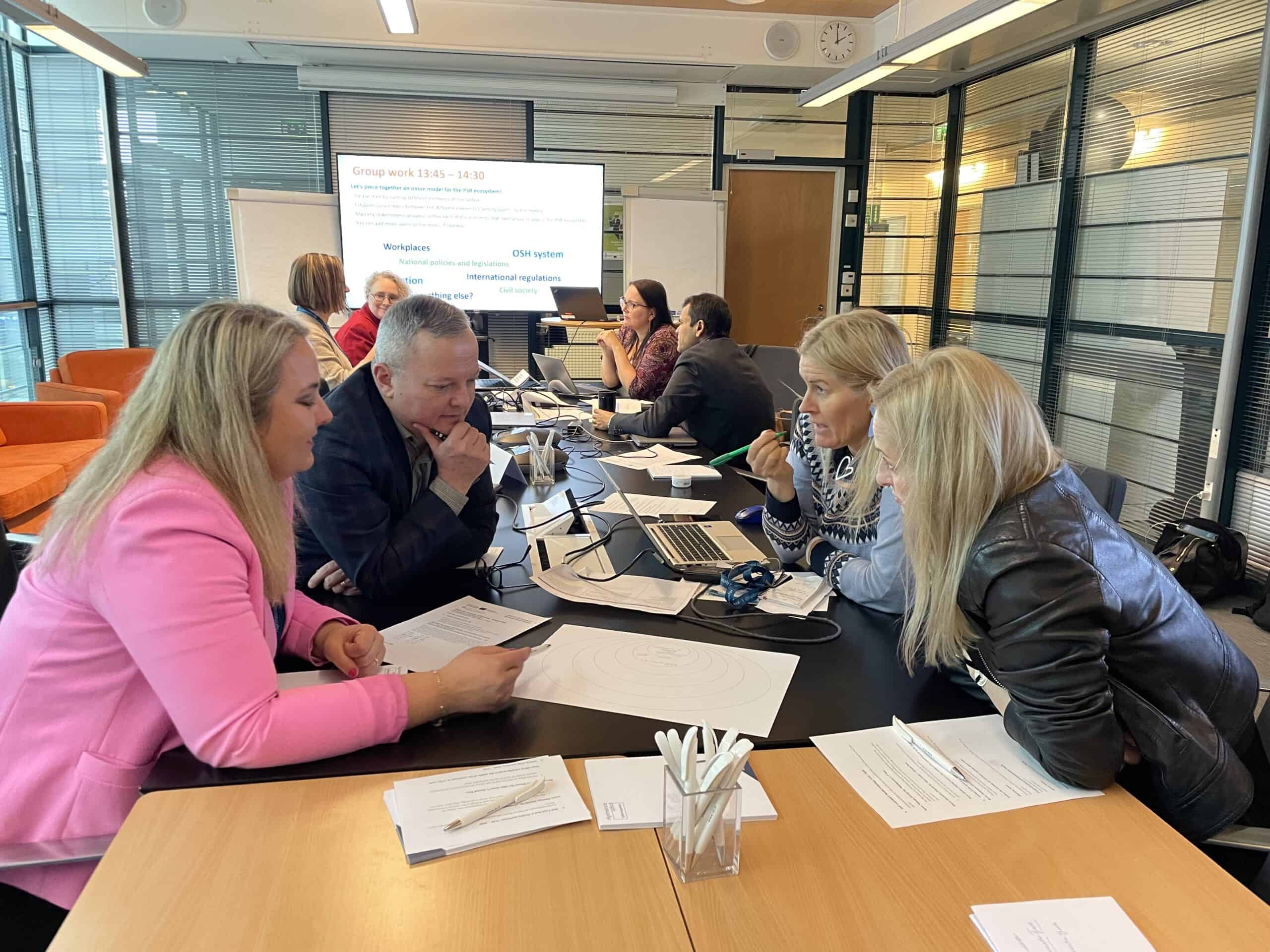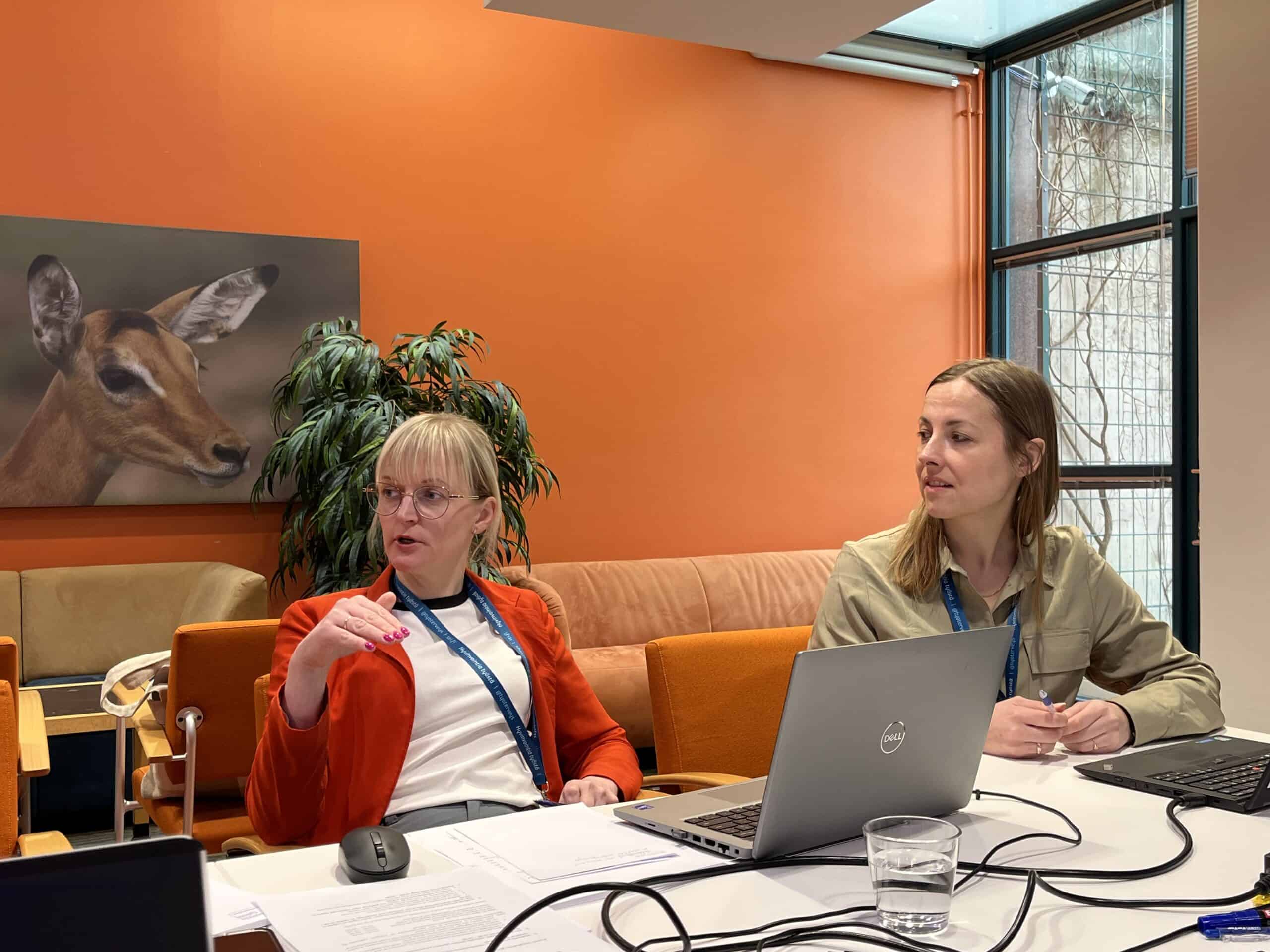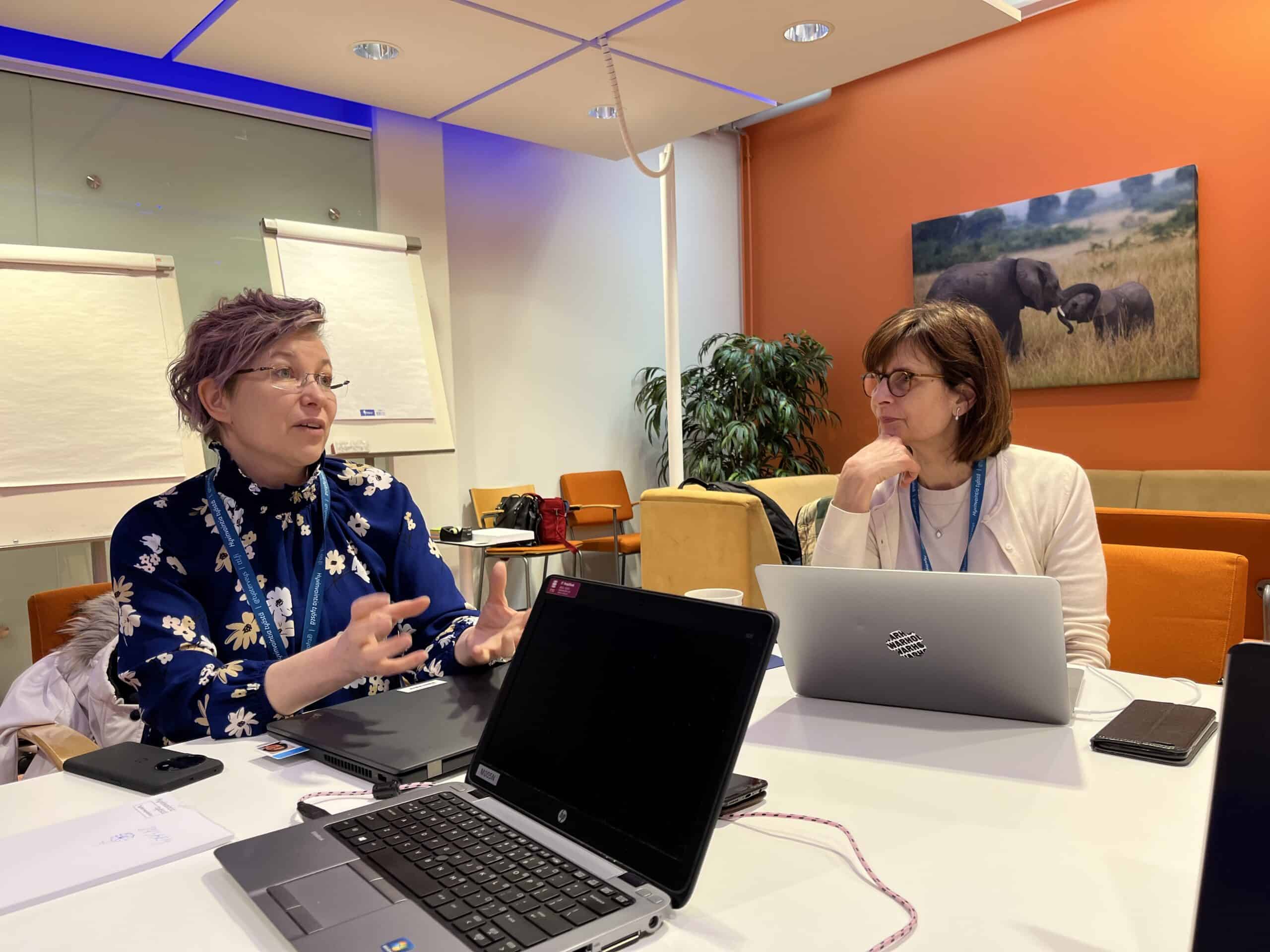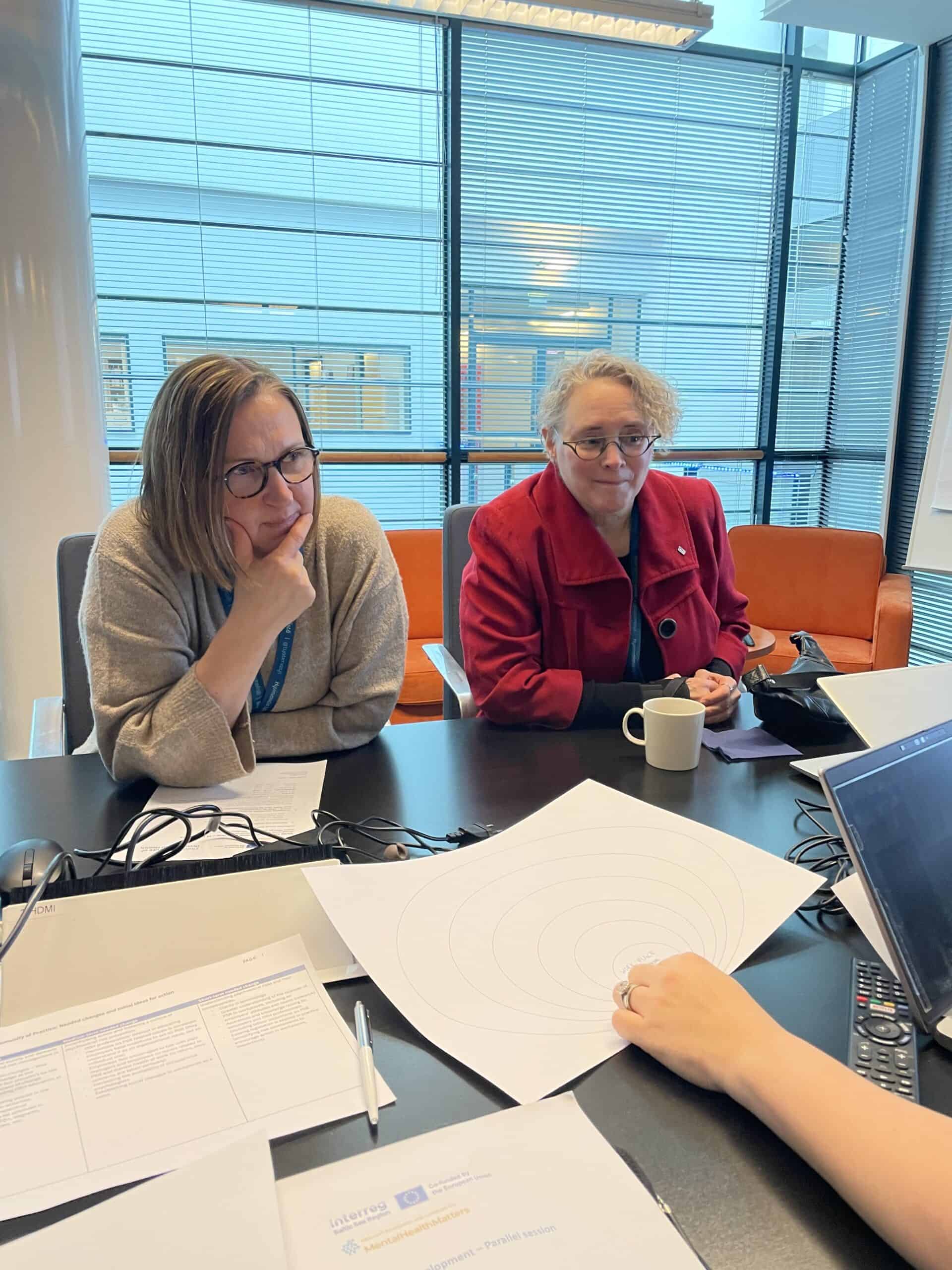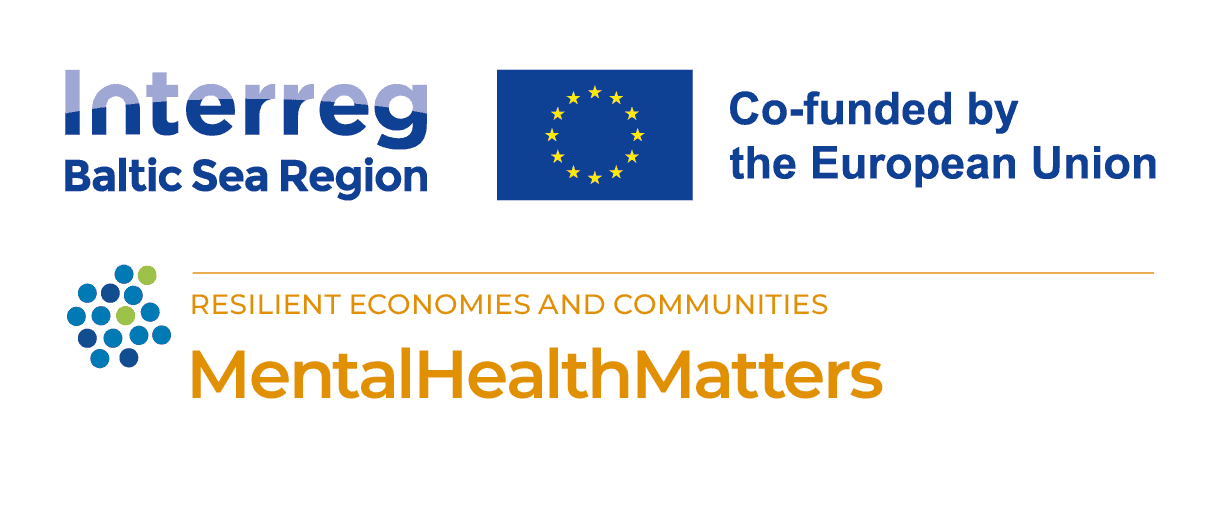
Uncovering the gaps and opportunities in education and training on psychosocial factors at work during a workshop in Helsinki
05 April 2024
Further education and training can build necessary competencies and skills
The project partners presented the national competencies and skills of occupational physicians, safety personnel, labour inspectors and employers on addressing psychosocial factors in workplaces. Prior to the workshop, the partners had worked together with the representatives of the previously mentioned professional groups as well as universities, training centers and policymakers to identify concrete areas in need of improvement nationally.
The partners observed an alarming trend where the skills and knowledge on psychosocial factors that OSH professionals should have may not match with reality. Despite having a central role in identifying and minimising occupational risks, they often find venturing beyond traditional physical risks to psychosocial ones challenging. One of the reasons behind addressing, for example, mental health problems at work is a lack of know-how.
Drawing from a small survey conducted among OSH students and teachers in Finland, Ms. Elina Virtanen, Senior Specialist at the Finnish Institute of Occupational Health, noted:
“The OSH students report a lack of practical teaching methods and concrete examples on how to recognise and evaluate psychosocial risks at work, which indicates that their practical skills to tackle these risks may be limited.”
Simultaneously, the partners noted that vocational training opportunities for employers on the factors influencing the mental health of the workforce are often underutilised. Much of the employers’ topical knowledge is based on variably trustworthy information retrieved from social media, podcasts, and other online resources.
The first half of the workshop in Helsinki concluded with a joint understanding that providing high-quality, practice-oriented education and continuous training for OSH professionals, labour inspectors, and employers play an important role in building the necessary skills to address psychosocial factors in workplaces.
On the journey towards the project outputs
The second half of the workshop was dedicated to advancing the development of the two project outputs, namely:
- The online First-Aid Kit to support small and medium-sized enterprises (SMEs) in addressing psychosocial risks and taking preventive action
- The Roadmap detailing needed improvements and practical proposals for reform in OSH policy, regulations, education and practice both at the national and international levels.
The session on the First-Aid Kit focused on developing content and interface for the English version of the tool. The participants discussed the most frequently encountered challenges and psychosocial risks that they have nationally identified together with SME representatives, agreeing on the structure and main topics to be covered by the First-Aid Kit.
At the same time, the session dedicated to the Roadmap development discussed how to implement change in workplaces. To do this, an ecosystem for the governance of psychosocial factors was mapped, identifying the current main obstacles in the system and the areas where urgent reform is needed in the participating countries.
The day was concluded with optimism that change is possible coupled with a dash of realism that there are no quick solutions to systematically improve the mental health status of the workforce. In the words of one of the participants,
“There is no silver bullet for this issue of mental health at work. If there was, we would have found it already.”
For the change to happen, the MentalHealthMatters project partners stressed the need for social innovation, evaluation of the existing policies and promising practices, and close social dialogue both at the political and workplace levels.






